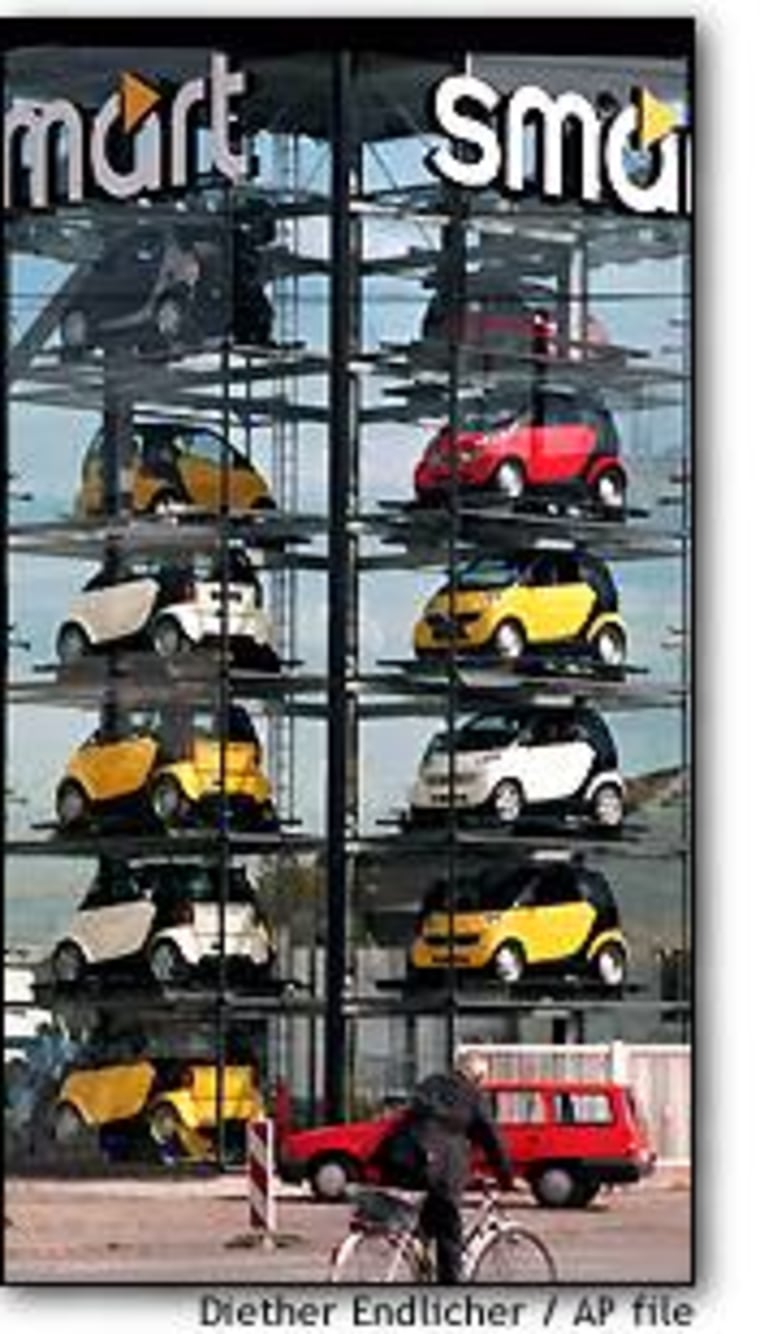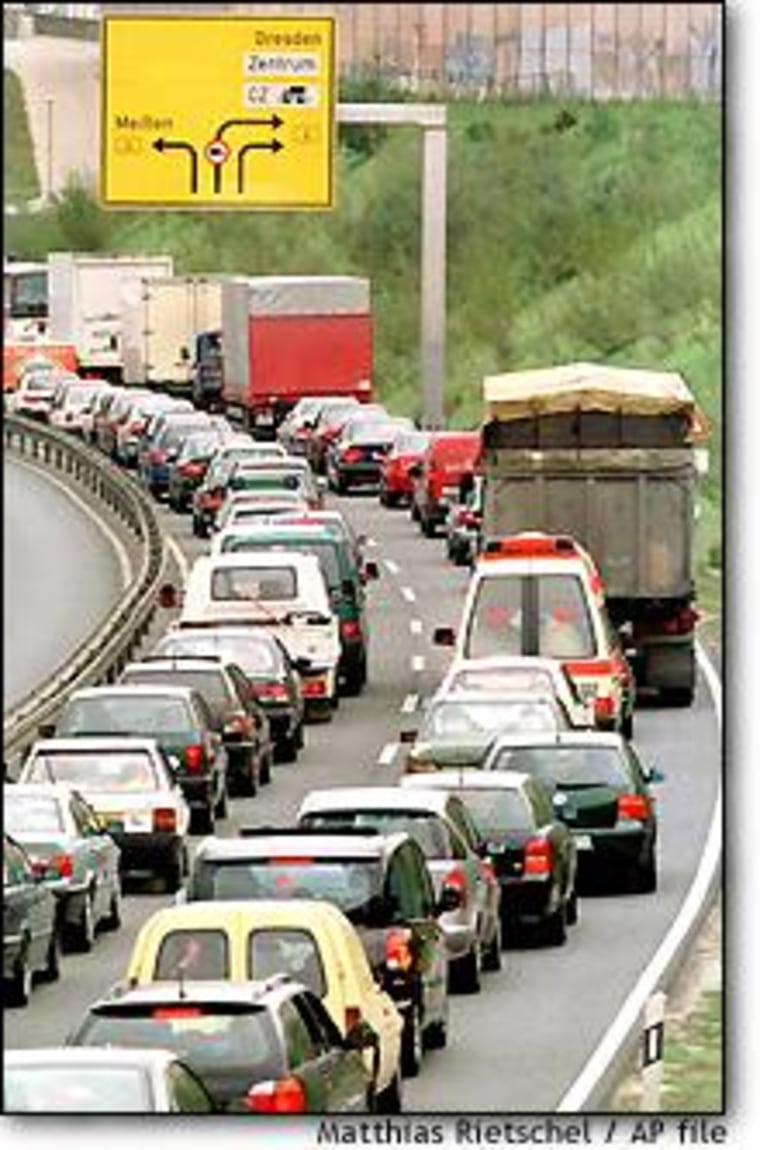Germans love their fast cars and autobahns, the wide-open superhighways that crisscross the nation. But that love affair is now complicated by looming environmental mandates.
Under the global climate treaty called the Kyoto Protocol, Germany has agreed to reduce carbon dioxide emissions by 25 percent from 1990 levels by the year 2005.
The diesel engine, which German automakers have invested millions of dollars in developing, could help the nation meet that goal. Nearly one-third of all cars in Germany have diesel engines, and turbo diesel direct-injection engines are being promoted as the greenest choice.
Audi even says the goal of the European parliament to reduce CO2 emissions to 120 grams per kilometer by the year 2012 could be reached earlier with diesel technology than with traditional motors. In fact, statistics show that the diesel engine has already come very close to meeting the goal.
Despite this global warming advantage, diesels still have a reputation of being “loud and dirty,” especially in the United States, where tighter particulate emission regulations have kept German car makers from aggressively marketing their diesel models.
“The diesel technology is a European specialty which will play an important role in achieving the environmental goals, and it will maintain its importance for the European market for another 20 years,” Rudolf Petersen of the Wuppertaler Institute for Climate, Energy and Environment told MSNBC.
But not all automakers are equipping their entire fleets with diesel motors. Production is limited to certain models because diesel cars still lack broad consumer acceptance. The other disadvantage to diesel is that they are more expensive than equivalent models with regular engines, and a tax break for buying one of the cars hasn’t attracted large numbers of consumers.
In response to environmental groups and political pressure, Volkswagen, AUDI and Daimler-Chrysler have all produced diesel cars that consume less than a gallon of fuel per 75 miles. But the cars haven’t caught on — again, mainly because of higher costs, and because their engines are not built for more popular midsized vehicles.
Better mileage means less air pollution. It also means less fuel consumption, a priority of the German government, which has imposed speed limits on most of the nation’s highways and introduced a so-called eco-tax to discourage general consumption.

The environmental Greens party, the government’s junior coalition partner, would like to go even further by forcing many commuters to use public transportation or even bicycles instead.
Fuel prices have risen to about $2.50 per gallon, triggering a public outcry, but also leading to a decrease in consumption over the past six months.
Last fall, Germany and other European countries faced massive trucker protests over higher fuel prices. France and Italy offered cuts in diesel fuel taxes to calm angry truck drivers, but Germany did not back down.
While car makers push the diesel engine, they also have one eye on the future — and pollution-free cars. The most promising appear to be cars powered by fuel cells and a combination of fuel and electricity.
Fuel-cell vehicles convert natural gas, methanol or hydrogen fuel into electricity without combustion. But the process is not entirely pollution-free. Hydrogen needs to be produced with fossil fuels, such as gas or methanol, a process in which carbon dioxide is still emitted.
German automakers see fuel-cell cars as a vehicle of the future. DaimlerChrysler says it will introduce the first fuel-cell buses in Germany next year, and plans to market fuel-cell cars by 2004, if they can be sold at the same price as internal combustion-powered cars.
But analysts caution that these are long-term solutions.
“The fuel cell and hybrid technology are not expected to go into serial production before 2020 because they still have many technical and operational problems to overcome. And production costs are too high,” says Petersen.
